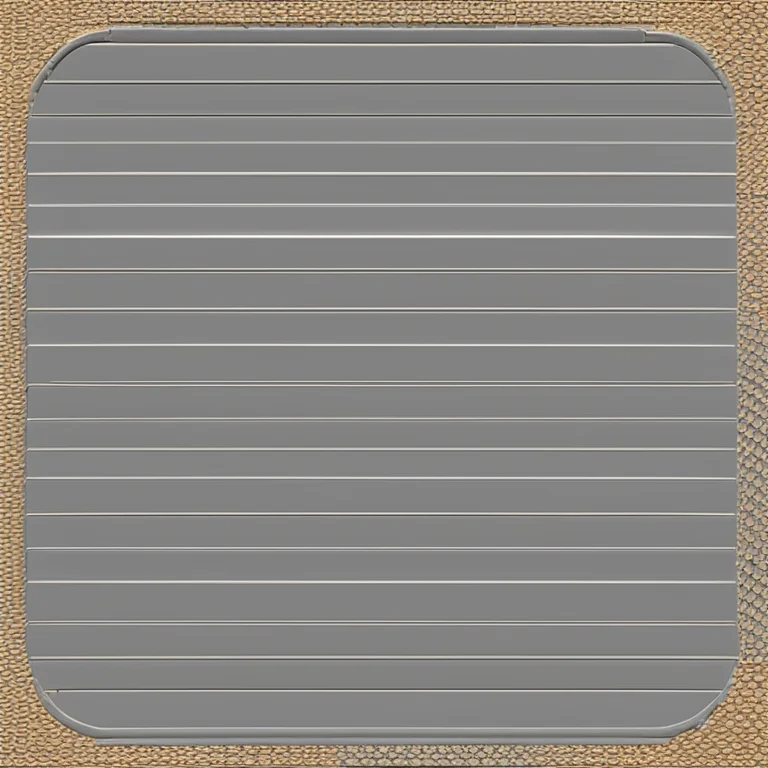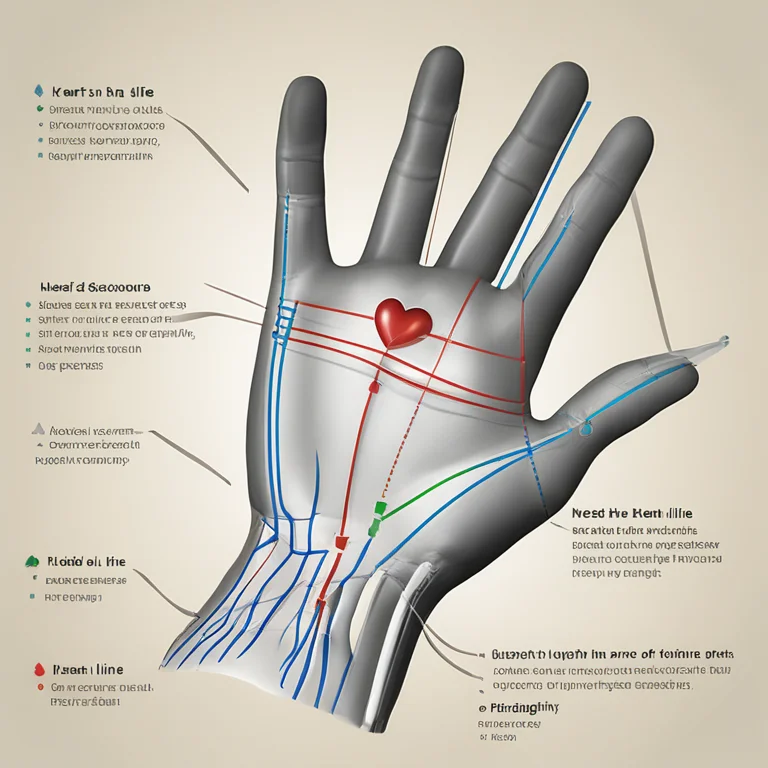
The Roots of Palm Lines: A Scientific Perspective
Delve into the science behind palm lines - their formation, types, and the factors influencing their unique patterns.
article by Nora Pennington
The Science Behind Palm Lines
Our palms are like maps of our individuality, with lines that weave unique stories. These lines, scientifically known as palmar flexion creases, develop in the womb around the 12th week of gestation. Contrary to popular belief, these lines aren't just random; they are the response of the skin to the movement of the hands. As the fetus moves in the womb, the skin on the palms starts to fold in places where the hand's motion is most frequent. These folds then become deeper and more pronounced leading to the creation of the palm lines we are so familiar with.

Genetics and Palm Line Formation
Research has evolved to demonstrate that genetics also plays a crucial role in the formation of palm lines. Variations in certain genes can determine the patterns and depth of these lines. While many features of our palms are inherited, individual experiences and movements continue to mold these patterns as we grow. Studies have also shown that identical twins may have similar palm lines, reinforcing the theory that genetics has a strong influence on these distinctive creases.

Environmental Factors and Their Influence
The environment in which a fetus develops impacts the formation of palm lines as well. Fluctuations in hormones, nutrition, and the overall health of the mother can have subtle effects on the development of an embryo's skin and flexion creases. In some cases, health professionals can sometimes detect chromosomal abnormalities through unusually formed palm lines, illustrating how closely our external environment is intertwined with our physiology.

Types of Palm Lines and Meanings
Often in palmistry, the three major lines - the heart line, head line, and life line - are attributed specific meanings about an individual’s emotions, intellect, and vitality. Scientifically, these lines correspond to the most prominent points of flexion on the palm. These may change slightly over a person's lifetime due to the skin's elasticity and how frequently the lines are pressed and folded during hand movements.

Recent Discoveries and Continuing Research
Contemporary research into dermatoglyphics, the study of the pattern of ridges and lines on the fingers and palms, continues to uncover new insights. In recent years, scientists have begun using advanced imaging technologies to study these lines, appreciating the complexity of their development. They are examining not only the genetic factors but also how broader biological and even epigenetic factors may influence palm line formation.
Conclusion: The Intrigue of Palm Lines
In conclusion, while palm lines have long been associated with fortune telling and personality analysis, their true origins are rooted deeply in biology, genetics, and the complex interplay of environmental factors. These lines tell a story that begins within the womb and continues throughout life, a narrative that science is still unfolding. Understanding the causes behind palm lines helps us appreciate the intricate details of human development and the mysteries still left to decode.
Published: 1/10/2024
Modified: 1/10/2024
More predictions
Come back here soon to learn more about yourself and your future


The Essence of Palmistry: Insights into Your Palm
Delve into the fascinating world of palmistry and discover what the lines on your palm reveal about your life path and personality, with contemporary relevance for the modern seekers.


Palm Reading Guide: Basics and Insights
Delve into the art of palmistry with this essential guide to reading palms, revealing secrets to personality and destiny through the lines on your hand.


The Mysterious World of Hand Analysis
Delve into the mysteries of hand analysis and discover what your palms can reveal about your personality and future.